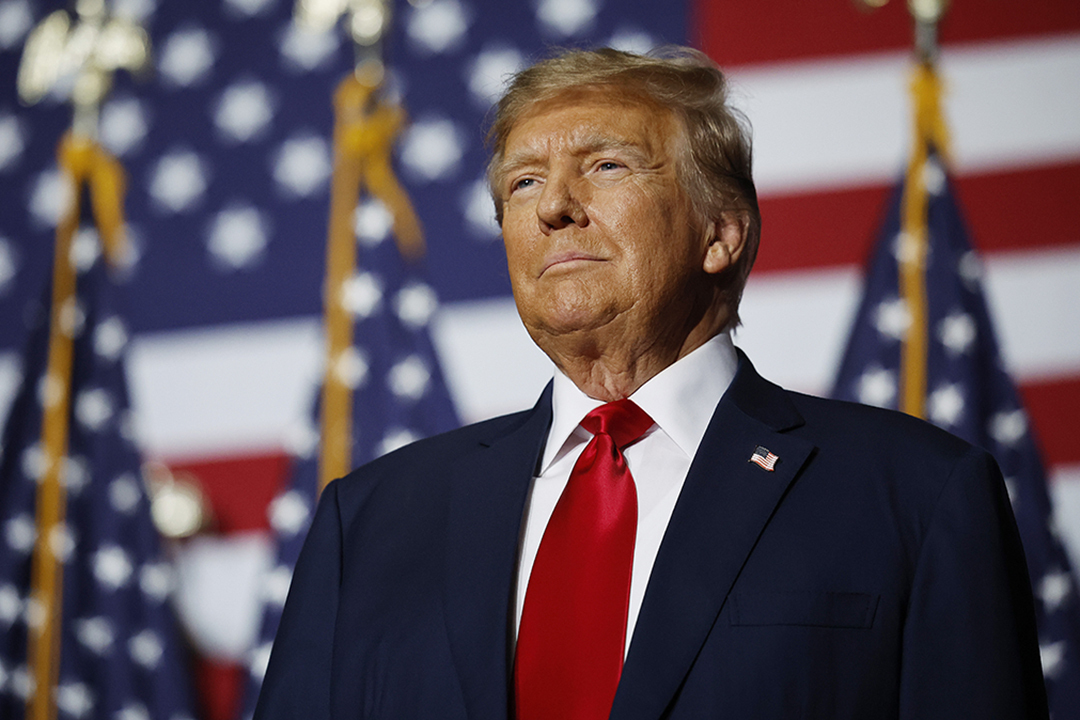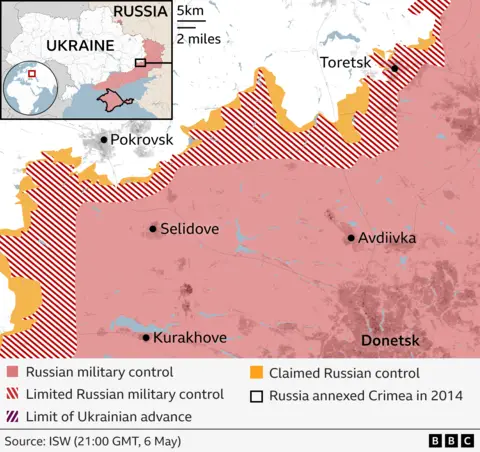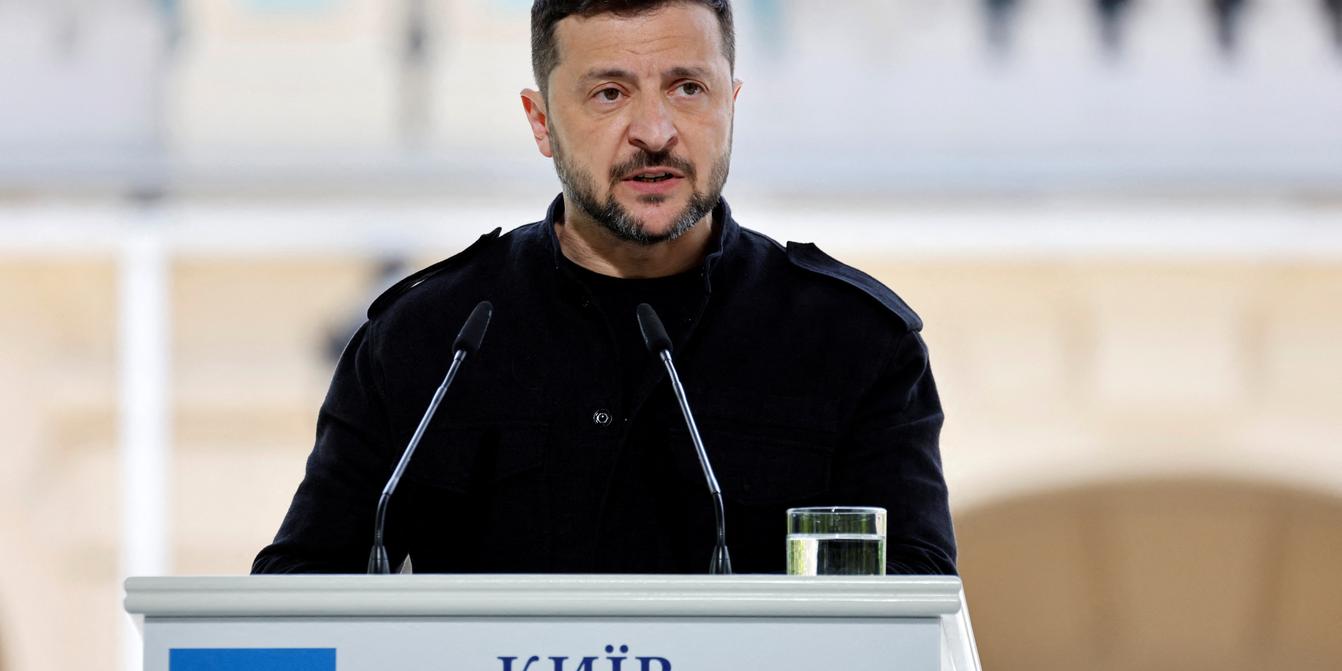
Turkey Peace Summit Hangs in Balance as Zelenskyy Confirms Trip While Putin Remains Silent
Ukraine-Russia Peace Talks: High Stakes Diplomatic Gambit Unfolds in Turkey
Zelenskyy Forces Putin's Hand With Bold Turkey Trip, Markets Brace for Volatility
ANKARA, Turkey — President Volodymyr Zelenskyy of Ukraine is taking his boldest diplomatic gamble yet, traveling to Turkey for potential face-to-face peace talks with Russian President Vladimir Putin — regardless of whether the Russian leader shows up.
"We will do everything to ensure that this meeting takes place," Zelenskyy told journalists, setting the stage for what could be the first direct engagement between the warring leaders since December 2019. "If he takes the step to say he is ready for a ceasefire, then it opens the way to discussing all the elements to end the war."
The Ukrainian president's decision to travel to Ankara on Thursday, potentially followed by a trip to Istanbul if Putin agrees to meet there, has dramatically raised the stakes in what analysts describe as an increasingly complex diplomatic chess match. The move puts extraordinary pressure on Moscow, which has maintained deliberate ambiguity about Putin's attendance.
When pressed about Putin's plans, Kremlin spokesperson Dmitry Peskov would only confirm that "the Russian side continues to prepare for the talks in Istanbul" and would announce its representative "as soon as the president deems it necessary."

The high-wire diplomacy has sent energy markets into a tailspin, with Brent crude already trading with what analysts estimate is a $4 "war premium." The iShares U.S. Aerospace & Defense ETF reached a one-year high on Tuesday, reflecting market belief that sustained NATO rearmament will continue regardless of the talks' outcome.
Brent Crude Oil Price Highlights Amid Geopolitical Volatility
| Date | Price (USD) | Key Event/Context | Impact |
|---|---|---|---|
| Feb 2022 | $105.79 | Russia invades Ukraine | Sharp spike in volatility and prices |
| Mar 2022 | $140 | War disrupts supply chains | Eight-year high reached |
| Dec 2023 | $78 | Slowing economy, high US output | Price decline from earlier highs |
| Jan–Feb 2025 | ~$75–79 | Moderate prices amid forecasts of rangebound trade | Stabilizing but still volatile |
| May 13, 2025 | $65.55 | Recent recovery | Still down ~12% since start of 2025 |
Trump's Wild Card and Western Pressure Campaign
Adding another layer of complexity to the diplomatic dance, U.S. President Donald Trump has floated the possibility of participating in the discussions himself. "If I think things can happen, but we've got to get it done," Trump said Monday while beginning the first foreign trip of his second term in Saudi Arabia.

Trump has reportedly been urging both Zelenskyy and Putin to engage in direct talks, with his special envoys Steve Witkoff and Keith Kellogg expected to travel to Turkey to observe the negotiations.
Behind the scenes, Western nations have been orchestrating what appears to be a coordinated pressure campaign to force Russia to the negotiating table. Germany's new chancellor, Friedrich Merz, revealed Tuesday that European nations are working on a "significant tightening" of sanctions if they determine Russia isn't making "real progress" toward peace.

"I admire Zelenskyy's willingness to compromise," Merz said, "but I believe more compromise and more concessions are no longer reasonable."
These potential new sanctions could target Russia's energy sector, financial markets, and its "shadow fleet" of vessels transporting oil, according to diplomatic sources familiar with the plans.
A "shadow fleet," sometimes called a "dark fleet," refers to ships, often oil tankers, that operate outside typical international shipping regulations and oversight. These vessels are primarily used to circumvent sanctions by obscuring their ownership, disabling tracking systems, or engaging in other deceptive practices.
Irreconcilable Demands and Military Reality
The diplomatic maneuvering unfolds against a backdrop of continued fighting and seemingly incompatible positions. Russian Deputy Foreign Minister Sergei Ryabkov outlined Moscow's expectations for the talks, including "solving issues related to the denazification of the Kyiv regime" — terminology Russian officials use to indicate regime change in Ukraine — and recognition of Russian control over occupied Ukrainian territories.
Russia's use of "denazification" in the Ukraine conflict refers to a stated war aim, drawing parallels with the post-WWII denazification of Germany. However, its application to Ukraine is widely contested and often viewed as propaganda, necessitating an understanding of both its historical context and its current, specific meaning in Russian rhetoric.
Ukraine, meanwhile, seeks an immediate, unconditional 30-day ceasefire as a prerequisite to broader negotiations focused on security guarantees and frameworks for de-escalation.
"If Putin refuses to show, it means only one thing: that Russia is not ready for negotiations," Zelenskyy said, adding that in such a scenario, the U.S. and European partners must follow through with their threatened sanctions.
Andriy Yermak, Zelenskyy's chief of staff, was even more direct: "If Vladimir Putin refuses to come to Turkey, it will be the final signal that Russia does not want to end this war."
Meanwhile, military analysts report that Russian forces have recently captured territory in several key locations in eastern Ukraine's Donetsk region, particularly around the flashpoint cities of Pokrovsk and Toretsk. Geolocated footage published last week showed Russian forces seizing positions along the critical T-0504 Pokrovsk-Kostyantynivka highway.

Market Analysts See Limited Breakthrough Potential
Financial markets have priced in considerable skepticism about a diplomatic breakthrough, with most analysts assigning low probability to a durable peace agreement emerging from the Turkey talks.
"I assign only 25% odds that Putin actually shows, 10% that a durable truce is inked this month, and 70% that Europe triggers its pre-drafted sanctions package within a week," said one senior market strategist at a major investment bank who requested anonymity due to the sensitivity of the matter.
The strategist outlined four potential scenarios: no-show with a new Russian offensive (45% probability), talks without a ceasefire (35%), a 30-day ceasefire with a roadmap for future negotiations (10%), and a comprehensive peace agreement (10%).
Hypothetical breakdown of probabilities for Ukraine-Russia peace talk outcomes, according to market strategists.
| Source/Analyst | Scenario | Probability | Date Published |
|---|---|---|---|
| MAX Security | Russia & Ukraine successfully negotiate a ceasefire deal | 60% | 2025 |
| MAX Security | Protracted conflict continues with Russia and/or Ukraine rejecting ceasefire deal | 35% | 2025 |
| MAX Security | Russia or Ukraine secure a decisive victory | 5% | 2025 |
| Allianz Research | Partial ceasefire, with a fragile truce | 40% | Feb 27, 2025 |
| SPI Asset Management (via MarketWatch) | Betting markets peg odds for a deal in 2025 at around | 70% | Feb 20, 2025 |
| ACAPS | Continued war without resolution | Most Likely | Mar 31, 2025 |
| ACAPS | Reduction of hostilities (ceasefire as precursor to peace) | Less Likely | Mar 31, 2025 |
| Chatham House | 'Long war' – An attritional conflict | N/A | Oct 16, 2024 |
| Chatham House | 'Frozen conflict' – An armistice stabilizing the front line | N/A | Oct 16, 2024 |
| Chatham House | 'Victory for Ukraine' – Russia pushed back to pre-Feb 2022 lines | N/A | Oct 16, 2024 |
| Chatham House | 'Defeat for Ukraine' – Ukraine accepts Russian terms | N/A | Oct 16, 2024 |
Each scenario carries distinct market implications, with energy prices particularly vulnerable to headline risk. Brent crude could swing $6-10 higher if Putin fails to attend, while a ceasefire announcement could trigger a $5 drop, according to commodities analysts.
"Defense and oil-beta equities remain particularly sensitive to developments," said another market analyst. "The Energy Select Sector SPDR Fund has been trading in a widening $80-90 range, with algorithms responding rapidly to each diplomatic headline."
Historical Context and Expert Pessimism
History provides little cause for optimism. The last face-to-face meeting between Putin and Zelenskyy occurred in 2019 during a Normandy Format summit in Paris. Direct talks between Russian and Ukrainian negotiators last took place in Istanbul in March 2022, shortly after Russia's full-scale invasion began.
According to reports, those 2022 discussions produced a draft agreement with demands that Ukraine forego NATO membership, amend its constitution to add neutrality provisions, drastically reduce its military forces, and accept limitations on its weapons systems. The Institute for the Study of War characterized these terms as equivalent to "complete Ukrainian surrender."
The Institute for the Study of War (ISW) is a think tank whose mission involves conducting research and analysis on military conflicts. It plays a role in providing detailed assessments, notably including its analysis of the war in Ukraine.
Most independent analysts remain deeply skeptical about the prospects for a genuine breakthrough.
"I would even say that any peace prospect in 2025 appears as much an illusion as a May 15 meeting between Zelenskyy and Putin," said Ukrainian military-political analyst Oleksandr Kovalenko. "It is not worth having high hopes for these negotiations."
Alexander Baunov, senior fellow at the Carnegie Endowment for International Peace, suggested Putin's diplomatic overture serves multiple strategic purposes beyond peace: "The Russian army will continue its offensive on the front lines and bomb Ukrainian rear positions, reinforcing diplomatic pressure with military force."
Turkey's Strategic Gambit
For Turkey and President Recep Tayyip Erdoğan, hosting such high-stakes talks represents a significant opportunity to reestablish the country as an indispensable diplomatic broker between East and West.

Market analysts note that Turkish assets could experience significant volatility around the talks, with some traders positioning for a brief rally in the Turkish lira if meaningful progress emerges. Some investment strategists even recommend Turkish bank ADRs paired against short positions in lira forwards as a way to profit if Ankara's diplomacy succeeds while hedging currency risk.
Did you know that the Turkish Lira (TRY) has been one of the world's most volatile currencies since 2016, currently trading at 38.7806 against the US dollar while having reached an all-time low of 41.58 in March 2025 following the arrest of President Erdogan's main political rival? The lira's volatility is strikingly evident in its one-month implied exchange rate volatility of 18.9% as of April 2025, with the currency showing a substantial annual depreciation of 20.22% against the dollar, while performing even worse against other major currencies like the Russian Ruble (-27.05%) and Swiss Franc (-22.92%). Despite the Turkish central bank's interventions through multiple interest rate hikes in 2025, the currency continues to experience significant instability influenced by both domestic political tensions and international economic factors, including US-China trade developments that have strengthened the dollar against emerging market currencies like the lira.
As the diplomatic drama unfolds, markets will be watching a series of critical dates beyond this week's potential summit, including a May 17 EU foreign affairs council meeting likely to address sanctions on Russia's maritime operations and Putin's annual economic forum in late May, where his tone on energy exports could signal Russia's true intentions.
For now, the world watches and waits to see if Zelenskyy's bold gambit will force Putin's hand — or merely reinforce the impasse in a conflict that has reshaped European security architecture and global energy markets.
